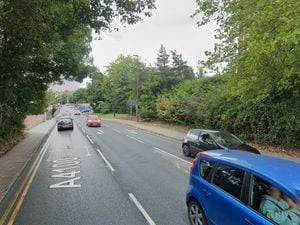Comment: Flexibility is useful, but building an identity is key for West Brom
A routine 1-0 victory against lower-league opposition in the first round of the Carabao Cup wouldn’t normally live long in the memory.

But there is a chance that Tuesday’s game against Luton Town will take on added significance later on this season, because it might have given the first glimpse into Darren Moore’s plans for his team.
An experimental 3-4-1-2 formation may not have yielded a seven-goal thriller like an orthodox 4-4-2 did just days previously, but the insistence on playing the ball both out from the back and on the deck will have intrigued the 10,000 onlookers.
Tony Pulis’s approach to football was arguably best summed up by the title Tai Schierenberg, last season’s artist in residence, gave his portrait in a recent Channel 4 documentary.
“The Fear Of Failure” permeated Pulis’s play, and while it has proven to be incredibly effective over the years, it was a safety-first approach.
Moore got some stunning results towards the back end of last season by returning to that comfort zone following the Alan Pardew debacle.
This season though, he seems intent on stamping his own authority on the team.
Considering Belgium played a 3-4-2-1 at the World Cup, the system trialled midweek may have been the first sign of Graeme Jones’s influence on the side.
There was a reason Moore was willing to wait all summer for Jones, an experienced assistant, but Albion’s head coach is not just a front man.
“We share the same views on the game,” said Moore. “What you’ve got to remember is I played in a back three when I was at West Brom and got great success from it.
"Under Gary Megson we played a back three and won promotion. I understand the dynamics of that system.”
Against Luton, Albion’s young side trusted each other in possession, attempted to play through the lines, and switched play at pace.
It’s early days, but Baggies fans are tentatively excited about the possibility of a new identity like this, because it's one they’ve been crying out for.
Moore, however, is not dogmatically committed to any system or philosophy at this stage, because he wants his team to have a number of strings to its bow.
“I want to have the flexibility to play whatever shape and system going forward,” he said. “The other night was just a snippet.
“Is it a shape and system I’ll stick with? I’ll chop and change. We’ll play back fours, back threes, back fives, however we see fit. I want that flexibility.
“People saw that for the first time on Tuesday but it’s something I’ve documented since I got given the job. We’ll keep working on it day by day, week by week.”
A meticulous planner and a diligent worker, Moore has tightened up security at the Palm training ground this season.
Delivery drivers must leave as soon as they’ve finished, agents are not allowed to hang around and watch training, and journalists are asked to vacate the premises as soon as interviews and press conferences are over.
Moore does not want any trade secrets that will help the opposition getting out, or any distractions for his squad during this period of change.
In order to get the flexibility he wants, it’s going to take time on the training ground, time he hasn’t had so far.
Today’s match at home to QPR is Albion’s fifth in 15 days, and because of that hectic start to the season, the seniors may not be ready for a back three just yet.
But Moore is looking forward to next week, and an opportunity to develop his ideas furthers.
“We’re working on a lot with the team and that gives us a good opportunity to implement the details,” he said.
Flexibility is important, because football can throw unpredictable variables at you, like injuries and different opponents.
But the best teams have an identity and a system that all the players buy into. It will be interesting to see if Moore settles on his as the season wears on.





